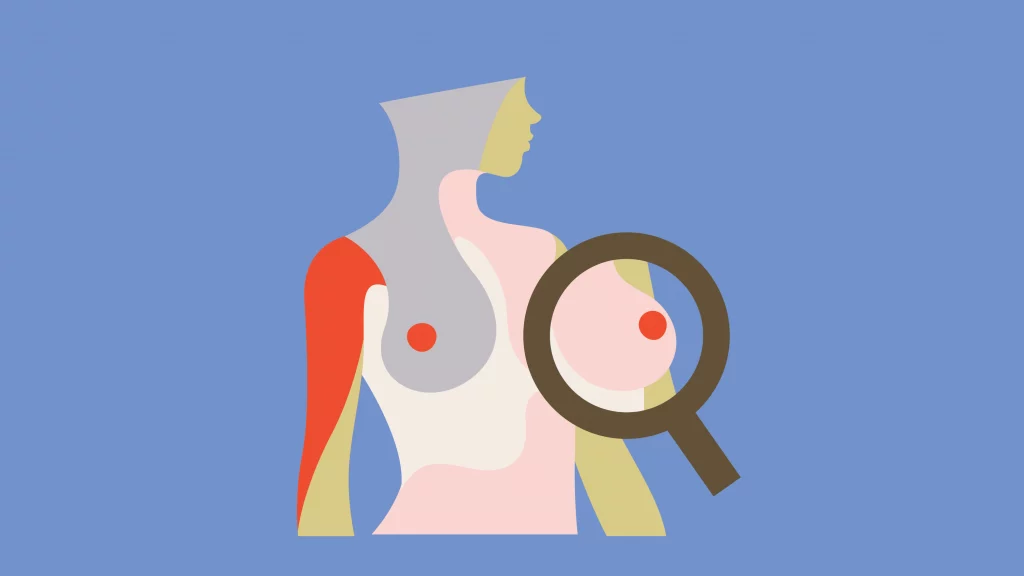Navigating Cancer: Danger of Not Following Standard of Care
- Model and actress Elle Macpherson, known as “The Body” at the dawn of the ’90s supermodel era for her stunning physique, has shared more about the emotional side of her breast cancer journey, and how disagreements with her husband over treatment decisions are what ultimately led to her divorce. This unfortunately is not uncommon, as many survivors know how much the disease can affect relationships, for better or for worse. Understandably, it can be a challenging process in all areas.
- The Australia native was diagnosed with HER2 positive estrogen receptive intraductal carcinoma (stage 0 breast cancer, which is considered a pre-cancer) after having a lumpectomy done to remove a small mass in her breast. At the time, she was advised to undergo chemotherapy and a mastectomy [surgical removal of one breast], something she chose not to do. There are more details needed for this case, as chemotherapy is not typically a treatment used in most cases of stage zero breast cancer in the first place.
- Elle promoting holistic treatment of cancer is something doctors adamantly discourage. Yet, there are significant studies being done on whether it’s necessary or how much treatment is needed with stage 0 breast cancer. Ultimately, the decision, of course, is up to you, but SurvivorNet experts strongly urge patients to follow the standard of care set by a governing body called the NCCN.
Model and actress Elle Macpherson, known as “The Body” at the dawn of the ’90s supermodel era for her stunning physique, has shared more about the emotional side of her breast cancer journey, and how disagreements with her husband over treatment decisions are what ultimately led to her divorce.
Read More“It opened up the floodgates and everything changed,” Elle added. “Our marriage was over and we both knew it.”
The mom of two, who was diagnosed in 2017, had been married to real estate mogul Jeffrey Soffer, 56, since 2013. She shares sons Flynn, 26, and Cy, 21, with her first husband, French fashion photographer Gilles Bensimon, 80.
View this post on Instagram
In her book, Elle also disclosed “traumas with addiction, burnout, overall mental, emotional, and physical health” and thankfully, the “startling realization that gave her life new meaning,” the book’s synopsis says.
A ‘Raw and Courageous’ Memoir
Speaking of her “ironic” health situation on The Art of Being Well, shared to Instagram on Friday: “I’m building a wellness business and I’ve just been diagnosed with breast cancer,” the WelleCo founder said with a little laugh.
“What I realized is when you follow your heart, it will never lead you astray,” Elle said in another clip of what appears to be her life mantra.

Last month ahead of her book release, Elle proudly shared the enthusiasm she has received so far.
“People have written to me and said that they feel my book, elle, is real and raw and courageous – and I’m so pleased because I wanted it to be tangible. Real. Without drama yet with meaning,” she captioned a stunning black-and-white image of one of her most famous shots. In it, she wore a one-piece black swimsuit with just one strap, her bare right breast cheekily covered by her arm, taken for a 1990 cover story in Sports Illustrated.
View this post on Instagram
Fans flooded the comments with her famous nickname, “The Body,” originally coined by TIME magazine in 1989, the title Elle wound up using for a workout video.
“The book is raw and interesting,” one of her supporters shared. “I love your outlook of life @ellemacpherson and how you see each journey as a different lesson of your life path. Enjoy it, thank you!”
Leading up to her book release, the fitness and fashion icon shared many other iconic modeling shots, including another black-and-white taken by Jacques Malignon on the rooftop of his NYC loft in front of the Empire State Building.
View this post on Instagram
“I used to have this pic on my refrigerator in the 80’s. to remind me to keep my food intake in-check,” one commenter wrote with a smiley face. “I am a big fan of Elle and I loved the image!”
Another chimed in, “I remember that photo. I think you’re prettier now!”
Relationships and Cancer
Any relationship goes through its ups and downs, especially with more challenging life hurdles like a cancer diagnosis or other serious medical issue.
In this episode of SurvivorNetTV’s series, SN & You. Mental Health and Relationships, survivors share how they handle their mental health and relationships while undergoing cancer treatment.
How to Navigate Relationships During and After Cancer – A Survivor’s Guide
“My husband and I had actually been separated for two years and we had only recently reconciled,” says Mary Elizabeth Williams who is featured in the film. “As painful and awful and crappy as it all was, we chose to be there for reach other.”
We all get depressed from time to time or we have a bad day “that’s part of normal human emotion,” Dr. Irwin adds. “And sometimes it gets to the point where that depression can be a little bit overwhelming and we help them through therapy.”
Elle Macpherson’s Breast Cancer Diagnosis
Elle Macpherson was diagnosed with HER2 positive estrogen receptive intraductal carcinoma (stage 0 breast cancer) after having a lumpectomy done to remove a small mass in her breast. At the time, she was advised to undergo chemotherapy and a mastectomy [surgical removal of one breast], something she chose not to do. However, there are more details needed about Elle’s specific case, as there appears to be confusion on her quotes. When she said she chose not to have surgery and handle her health holistically, she in fact had a lumpectomy, which is a type of surgery. And in most cases, chemotherapy is not used as a treatment for stage zero breast cancer.
RELATED: I Have Stage Zero Breast Cancer: What Should I Do?
Therefore, more details are needed as to why Elle was advised to receive chemotherapy. Some doctors don’t consider stage zero breast cancer to be a cancer and would rather not treat it, while others fear it can spread and want to remove it surgically.
For breast cancer in general, the decision not to undergo chemotherapy goes against the standard care and most facilities across the United States, and it’s something doctors typically don’t recommend in most cases. Yet, there are significant studies being done on whether it’s necessary or how much treatment is needed with stage 0 breast cancer.
“DCIS, it’s a pre-cancer, technically,” oncologist Dr. Ann Partridge, chair of the Department of Medical Oncology Institute at Dana-Farber Cancer Institute previously told SurvivorNet in a discussion on stage 0 breast cancer. The standard treatment for DCIS is to remove it surgically and in some instances offer radiation as well. “But I think if a woman is seeing a physician who says you need surgery, I think it’s really important that she maybe get a little more information,” Dr. Partridge added.
What is Stage 0 Breast Cancer?
It is also important to note that alternative therapies/medicines have not been shown to improve cancer outcomes. SurvivorNet experts do not support alternative therapies and strongly urge women not to forgo conventional treatments. When it comes to integrative and holistic practices, there are many choices for patients which can improve quality of life. As always, as Dr. Partridge notes, multiple opinions from medical experts matter.
Macpherson’s 2017 diagnosis came just three years after she found benign cysts in her breast. It also followed her journey to sobriety, which she began in 2003 when she attended her first Alcoholics Anonymous meeting.

“Sobriety was a huge turning point in my life, and it was empowering because it showed me that all the events in my life were like a string of valuable experiences that could give meaning to my life,” Macpherson explained to The Australian Women’s Weekly.
“So by getting sober, I was able to see that instead of numbing it, instead of blocking myself from that pain, it actually became so uplifting for me. Alcoholics Anonymous is a roadmap for life. It’s such a powerful tool. And even a really spiritual one.”
As for her current health status, she told the magazine, “In traditional terms, they’d say I’m in clinical remission, but I would say I’m in utter wellness. And I am!
“Truly, from every perspective, every blood test, every scan, every imaging test … but also emotionally, spiritually and mentally – not only physically. It’s not only what your blood tests say, it’s how and why you are living your life on all levels.”
Learning More About Elle’s Treatment Decision
Internationally recognized breast surgeon and breast oncology specialist Dr. Laura Esserman, who conducted a study called the COMET study to look at the benefit of active surveillance versus standard treatment for stage zero breast cancer, has offered her insight on this matter—further confirming that new outlets reporting on the controversy are wrong.
RELATED: Julia Louis-Dreyfus and Millions of Women Have Faced Breast Cancer — What Type You Have Matters
In a previous interview, Dr. Esserman told SurvivorNet, “Surgery is standard of care for DCIS. Chemotherapy is never recommended for treatment of DCIS. The COMET study, for which we eagerly await the results, is a landmark effort to transform our approach and test the idea of active surveillance.
“We have just launched an exciting new study to test new approaches to risk reduction in DCIS. The RECAST DCIS (Re-evaluating Conditions for Active Surveillance suitable as Therapy for DCIS) will start with a non-operative approach.”

She continued, “Everyone can start with six months of surveillance and we used MRI imaging features to determine who is a good candidate to continue surveillance and avoid surgery. DCIS is a window of opportunity to rethink prevention.”
Researchers like Dr. Shelley Hwang, MD, MPH, a Principal Investigator in the COMET study, is also “hoping to identify less invasive, more customized approaches to care” for those diagnosed with DCIS.
Dr. Hwang spoke with the Breast Cancer Research Foundation (BCRF) earlier this year about the controversy surrounding DCIS treatment approaches. She explained, “Back in the day, we always used to think that DCIS would turn into cancer. A lot of what we’ve learned in the last 10 or 15 years is that there are many, many different kinds of ductal carcinoma in situ, including some DCIS that just stay within the ducts quite comfortably for the rest of the patient’s lives.
“And what we really need to move towards is a better understanding of what DCIS will have a greater likelihood of invading out into the breast tissue and becoming invasive cancer, and which DCIS is really going to stay confined to the ducts, in which case it’s a completely harmless condition.”
In order to reduce the fear around the very earliest stage breast cancer we want you to understand the definition and the debate around treatment.
More About Stage 0 Breast Cancer
Stage 0 breast cancer, also known as ductal carcinoma in situ (DCIS), refers to cancer that’s confined to the breast milk duct. There are two important facts about DCIS breast cancer:
1. It doesn’t spread to other parts of the body.
2. The risk of death is essentially zero.
As we said, among breast cancer doctors there is some debate about how to treat DCIS. Some doctors don’t even consider it a cancer, but rather a collection of abnormal cells or a pre-cancer, which is why some women opt for a watch and wait approach. Others may recommend the surgery route which usually involves a lumpectomy and potentially radiation as well. This somewhat more aggressive treatment (which is the standard protocol at major cancer centers) does have side effects, and potentially, long term effects. You should ask your doctor about the very large study going on which is comparing outcomes and long-term impact for treatment vs. watchful waiting in stage 0 breast cancer.
Less commonly, doctors and their patients will decide on more aggressive approaches depending on the amount of DCIS in the breast and a woman’s specific risk factors for a future breast cancer. One reason some doctors may want to remove DCIS is if a biopsy reveals any evidence that a more invasive breast cancer could be present.
The good news about DCIS: it’s usually always treated successfully (many oncologists do use the word cure in this situation), and you can take some time to digest the options, and then make a decision that’s right for you.
Contributing by SurvivorNet staff.
Learn more about SurvivorNet's rigorous medical review process.

